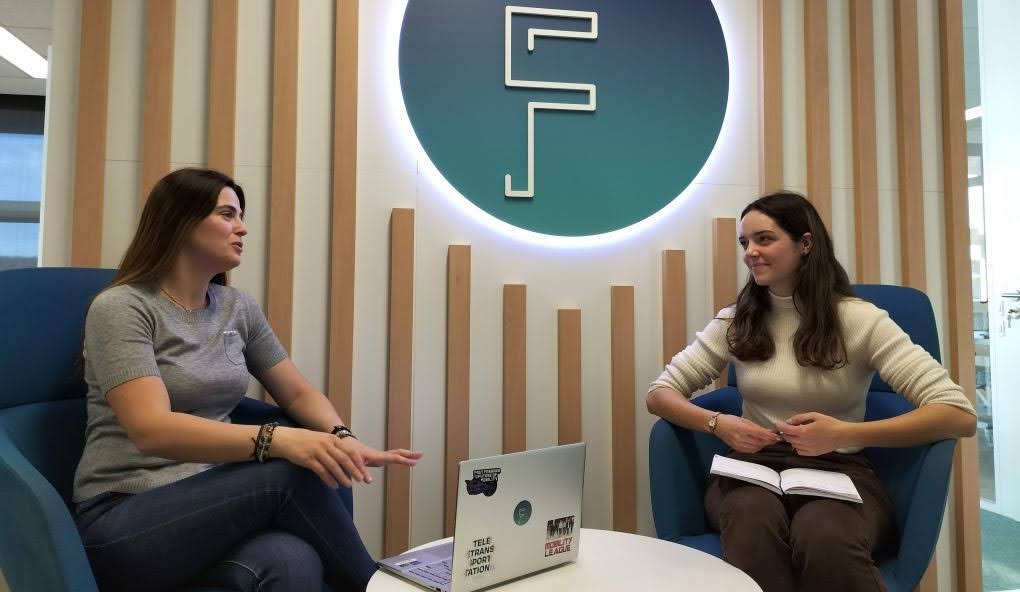
Interview with EU funded REALLOCATE project manager Eglantina Dani from FACTUAL Consulting
Did you know that around 60% of the public space in Barcelona is dedicated to cars? If we want to fulfil net-zero commitments, that has to change: cities are where the battle against climate change will be won and lost.
Redesigning our public spaces and the way we move around will be vital not just to make our cities better places to live in, but also to make them more resilient and sustainable.
The Horizon Europe project, REALLOCATE, aims to do just that, focusing on transforming Europe’s cities into inclusive, green, safe and future-proof urban spaces, where communities live and thrive. In this interview, Nemi´s R&D Project Manager Abby Meuli sits down with Eglantina Dani from FACTUAL, an innovation consultancy focused on transforming mobility, to talk about the project and their role in it.
Q&A
Abby: Let’s dive into the background of your role at FACTUAL, Eglantina.
Eglantina: I’m a project manager, with expertise in the transport industry. I honed my skills while studying civil engineering in Italy. Afterwards, I worked in Milan and then made the move to Barcelona five years ago. I spent some years in a research centre, mainly involved in European projects and collaborating with public administrations. Now, I’ve been contributing my expertise to FACTUAL for two and a half years. Time flies!
Abby: You’re one of the old timers here at FACTUAL, I believe. So, let’s shift our focus to REALLOCATE. Could you give us a comprehensive overview of the project and its objectives?
Eglantina: Yeah sure, to give you some context, a couple of years ago the European Commission allocated funds to 100 cities to help them achieve climate neutrality and work towards the EU’s binding commitment to reach net zero by 2050. To cut a long story short, REALLOCATE was lucky enough to be one of the projects awarded this funding. The primary goal of REALLOCATE is to pave the way for climate-neutral, safe, and smart European cities through urban mobility solutions.
Abby: Thanks for the intro! I have to admit, I did my homework before this interview, and, if I understand correctly, cities in the project will run pilot programs, and if successful, these initiatives might be replicated in other locations. Is that the gist of it?
Eglantina: Exactly. We have 15 pilots distributed across 10 cities, which are closely connected to share knowledge, engage in events and webinars to share best practice.
Abby: It’s like a waterfall of knowledge and expertise, everyone learning something from the people above them. Can you tell us about FACTUAL’s role within this extensive project?
Eglantina: FACTUAL is actually one of the core partners in REALLOCATE. We lead Work Package 2: Safe and Sustainable Mobility Labs, which essentially means coordinating all 15 pilots. We work closely with the cities to understand their needs, monitor pilot progress, set objectives, and troubleshoot any issues that may arise.
Abby: Could you walk me through a couple of the pilots?
Eglantina: Let’s delve into Barcelona as an example. In Barcelona, one of our pilots revolves around implementing what we call “superblocks 2.0.” This initiative is already in motion, but the pilot aims to promote active mobility, engage citizens and local stakeholders, and analyse potential conflicts between cyclists and pedestrians, an increasingly common issue.
Abby: Interesting! How about the other pilot in Barcelona, that Nemi is involved in?
Eglantina: This pilot takes a different approach, focusing on mobility and, more precisely, improving accessibility for people with disabilities. It involves creating an on-demand, responsive travel service, with Nemi providing the necessary software. Currently, people with disabilities in Barcelona primarily rely on taxis for transportation. This pilot aims to transition from taxis to regular public transport, utilizing Demand Responsive Transport Services. The Municipal Institute for People with Disabilities (IMPD) in Barcelona plays a significant role in this pilot as they are experts in the field.
Abby: That’s quite a complex pilot, with the need for thorough user testing. Sounds like a great initiative with the potential for a huge impact. So, how long do the REALLOCATE pilots have to reach their objectives? What’s the project timeline?
Eglantina: REALLOCATE is a four-year project that started in May 2023. We had our kickoff event in June in Dublin, where University College Dublin, the project lead, is based. The pilots are scheduled to run until 2026.
Abby: Plenty of time to make change! So to wrap up, what excites you the most about this project, and how do you envisage REALLOCATE influencing urban life and mobility in the future?
Eglantina: REALLOCATE is a massive project with an impressive array of partners. I’m excited about the potential for cross-collaboration with experts from various fields. We aim to make a lasting impact; we’re actively working on a platform to share information, KPIs, experiences, and events so that cities can continue learning and innovating even after the project concludes. The objective is for other cities to follow suit and replicate successful pilot initiatives. If we achieve our goals, we can truly transform the way cities prioritize safety and allocate public space.
Abby: That’s a promising vision for the future of urban mobility and safety. Thank you for sharing these insights, Eglantina.
Eglantina: You’re very welcome, Abby. It’s been a pleasure discussing REALLOCATE with you.




